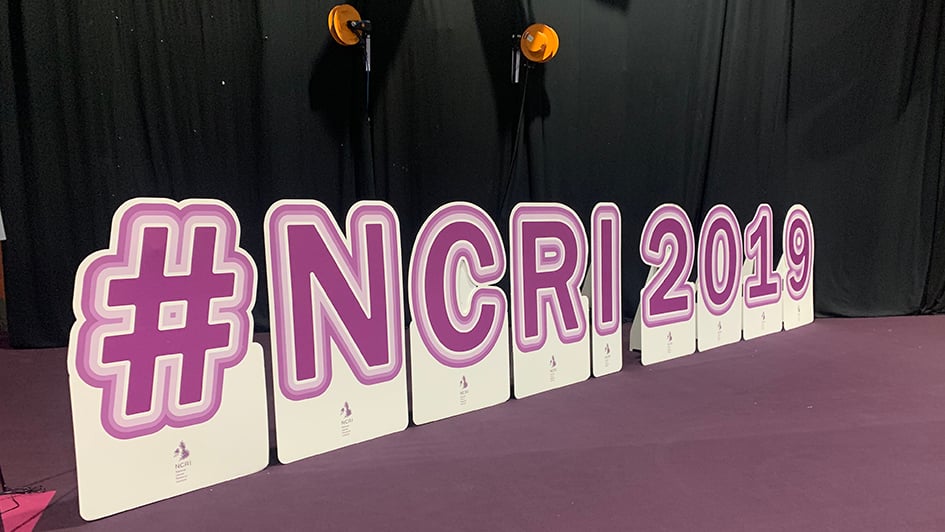
We all know that many cancer drugs are too expensive. And we all know that some of the most innovative new cancer drugs are also taking too long to reach patients on the NHS, and part of that is about their cost.
So, I imagine like everyone else in the room, I was gripped by Dr Mark Ratain’s talk on the new discipline of ‘interventional pharmacoeconomics’. He spoke about practical ways to reduce the cost of cancer drugs – not by long-winded negotiations over price, but by developing and trialling new ways to give these medicines, while ensuring they are just as effective for the patient.
At the University of Chicago, “surrounded by free market economists”, Dr Ratain wants to find free market solutions, rather than price regulations, to solve the “problem of high costs of modern therapeutics”.
Ratain has four strategies for reducing cost:
- Substitute one drug for another that works as well
- Use lower doses where they work equally well
- Give doses less frequently when they work as well
- Shorter durations of treatment with as good durations of benefit.
None of these would require governments to regulate for price reductions and Ratain talked through data showing how these strategies could cost less and, most importantly for patients, treat their cancer just as effectively.
The National Cancer Research Institute (NCRI) Cancer Conference is the UK's largest meeting of cancer researchers and doctors. In 2019, the conference is being held in Glasgow from 3-5 November and, as always, the ICR is attending.
Find out more
Safer treatment regimes
Ratain suggests these strategies could also actually be safer than giving treatments at the recommended doses because they would be less toxic with reduced risk of dangerous side effects, such as heart problems.
At The Institute of Cancer Research, London, through our drug access work, we’re trying to tackle the problems Dr Ratain highlighted in his talk. And there was certainly a great deal of inspiration for us to take away.
Dr Ratain even cited the example of a drug discovered at The Institute of Cancer Research (ICR) – abiraterone – with data showing that the prostate cancer treatment could be given at lower doses if taken with food, which increases the body’s absorption of the drug.
Treatment regimens like this need to be trialled but they seem to offer a sensible and relatively straightforward way to bring the costs of many drugs down.
Patient-centred talks like this were happening across the conference on day one. Attendees were welcomed by Iain Frame, the NCRI’s Chief Executive, and then by Gregor Smith, Deputy Chief Medical Officer for Scotland.
Among other things, Smith spoke about NHS Scotland’s vision of ‘realistic medicine’. At first this might sound rather an unambitious goal but in fact the aim is to ensure that the “people who are provided care, and the people providing it, have a much more balanced relationship”.
Smith highlighted how this work aligned with the NCRI’s priorities, which have been informed by asking patients what they want from cancer research.
New potential targets for drugs
A later session on risk models across breast, prostate and bowel cancers really struck home the importance of considering the patient first. The ICR’s Professor Ros Eeles spoke about her work in prostate cancer and how we need screening methods that find those at highest risk and ensure patients don’t receive unnecessary treatment.
Professor Eeles highlighted the risks associated with consumer genetic testing kits that have led people to request dramatic surgical interventions based on inaccurate genetic results. In her own work at the ICR and The Royal Marsden NHS Foundation Trust, she has collaborated with scientists from across the world to develop the most comprehensive genetic test for known genes that increase risk of prostate cancer.
As well as providing valuable information to improve genetic testing, the researchers are also looking at whether any of this genetic information could lead to new potential targets for drugs.
Earlier on in the day, Mariano Barbacid, from the CNIO in Madrid, spoke about effective therapeutic strategies for treating lung and pancreatic tumours by targeting the cancer gene KRAS. Barbacid explained how common errors in KRAS are when it comes to new cases of cancer – about 330,000 every year in the US alone.
So finding drugs that counteract KRAS sound like a good strategy for treating cancer but one problem has been that many of the potential drugs discovered have been too toxic to become a treatment. Using an impressive array of mouse models, Barbacid and his team in Madrid are looking at ways to block the effect of KRAS without causing this toxicity.
And it sounds like the Madrid team are having some success in effectively treating mice with lung and pancreatic cancer without significant toxicity. Hopefully we’ll see this preclinical work translated into clinical trials as soon as possible.
A hugely thought-provoking occasion
It was clear from the first day that the Scientific Committee, co-chaired by the ICR’s Professor Clare Isacke and Professor Ruth Plummer from Newcastle University, has devised an exciting programme of talks, which will stimulate the 1,500 cancer researchers, clinicians, industry professionals and patients in attendance.
With many more talks, events, and activities to come, including many from the ICR’s scientists, the 2019 NCRI cancer conference is sure to be a hugely thought-provoking occasion – and I’m certain, if day one is anything to go by, patients will remain at the heart of all the talks on the latest in cancer research.
To keep updated on the conference, and to find out how ICR scientists are paving the way for cancer research, follow @ICR_London and our team at the conference (@kbradnam, @nervyscientist, @Rosexwu and @thebenkolb), as well as #NCRI2019 on Twitter.
comments powered by